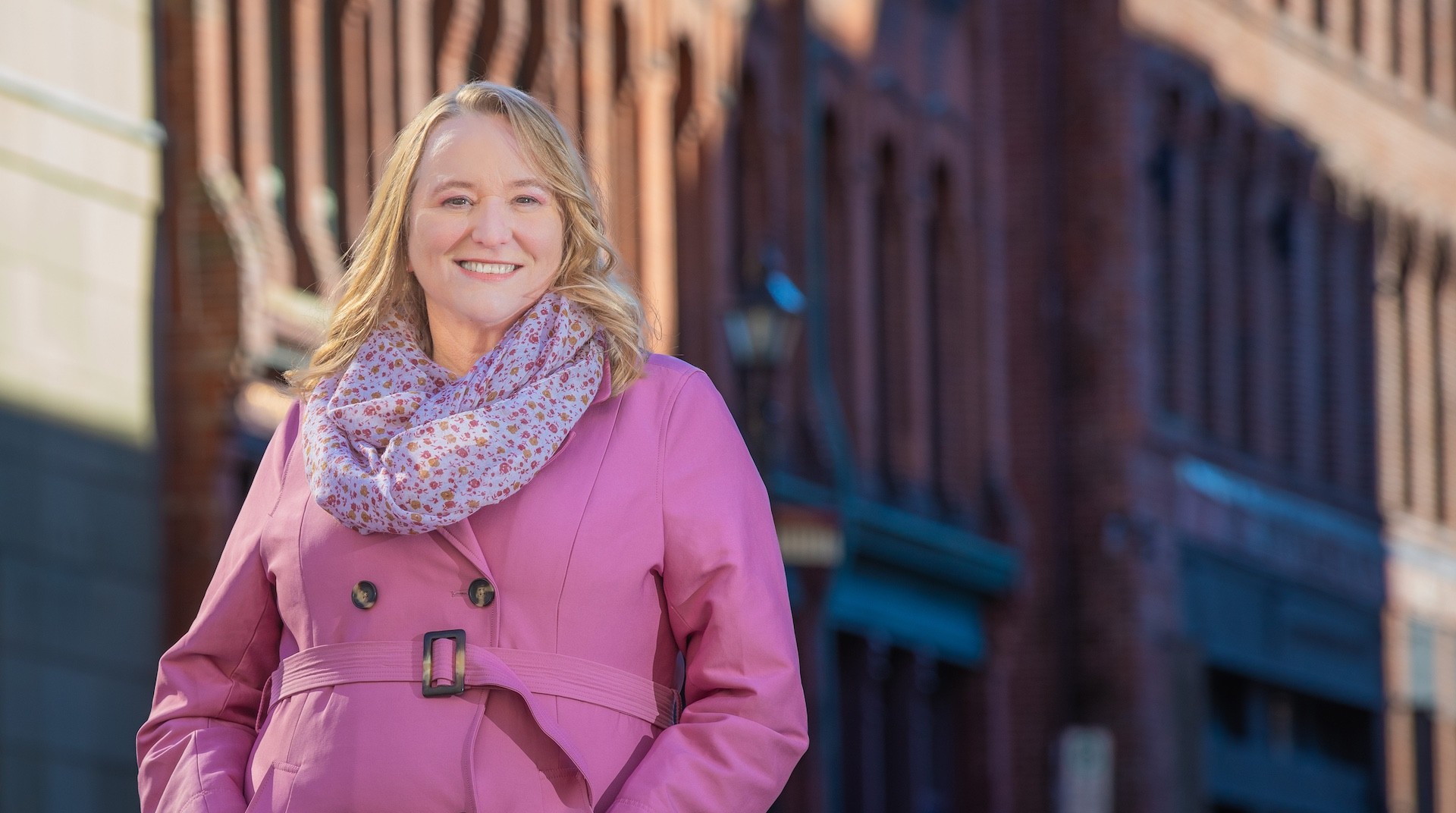First person science: exploring storytelling with CBC's Emily Brass
 Emily Brass is currently based at CBC in Saint John, New Brunswick.
Emily Brass is currently based at CBC in Saint John, New Brunswick.
Journalism has taken award-winning CBC reporter Emily Brass to six Canadian provinces over the last 13 years. She has covered pressing stories far and wide about crime, politics and law. But in the mix of daily news, she has pitched many science and health stories, an interest that sparked while studying at Concordia’s Department of Journalism.
“The science journalism classes at Concordia had a huge impact on my approach to reporting,” says Brass, who’s currently based at CBC in Saint John, N.B. “Professor Dave Secko enthusiastically explained how complex subjects can be broken into more understandable pieces, especially with the help of graphics, analogies and plain language.”
Such skills have come into play while she produced and hosted the CBC podcast Type Taboo: Diary of a New Diabetic, which follows Brass' journey as she learns to cope with her diagnosis of type 2 diabetes.
Through her own emotional reflections and interviews with diabetics from ages 17 to 76, the podcast serves to combat stereotypes and misconceptions around the disease, which affects one in three Canadians.
“One of the most harmful misconceptions is that diabetes is caused by a lack of willpower," she explains. “I spoke to remarkable people of all ages and diverse backgrounds about the toll this kind of thinking took on their health and was inspired by the ways they overcame those challenges to flourish.”
On July 31, the Concordia alumna will deliver the Projected Futures 8 keynote address. It comes as part of the international, experiential graduate summer school in the Department of Journalism, which exposes students to the foundations of evidence-based science reporting through multimedia workshops.
Her talk, Using Your Voice: First Person Storytelling in Explanatory Journalism, will dive into ways aspiring science communicators can use their curiosity and personal experiences to drive compelling stories.
“It might seem counter to traditional methods of telling news and science stories, but bringing your emotions and personal quests into your reporting can be an effective way to draw people in and make them care – which is ultimately our goal as journalists,” she explains.
Throughout the process of learning about diabetes, Brass would record her thoughts and feelings, which were integrated into the podcast.
“That was a really important part of the process since the podcast was based on my raw audio diary, filled with tender, vulnerable moments,” she says.
Sharing these moments paid off, as Type Taboo has engaged many listeners across the country.
“It was very powerful to get a bunch of messages from people who told me they went through very similar experiences, and that they felt more empowered to speak up and smash the stereotypes around diabetes after listening,” Brass says.
For those who might be looking to start their own first-person driven podcast or pitch a science or health story, Brass says the Projected Futures summer school is a great way to explore these skills.
“I’ve seen students change course after taking a science journalism class at Concordia, going on to become successful reporters and producers,” she says. “I’ve also seen science specialists blossom into engaging communicators. It’s a very empowering experience that can open new horizons.”
Register for the Projected Futures 8 Keynote with Emily Brass on July 31 at 6 p.m.
Learn more about Projected Futures.

